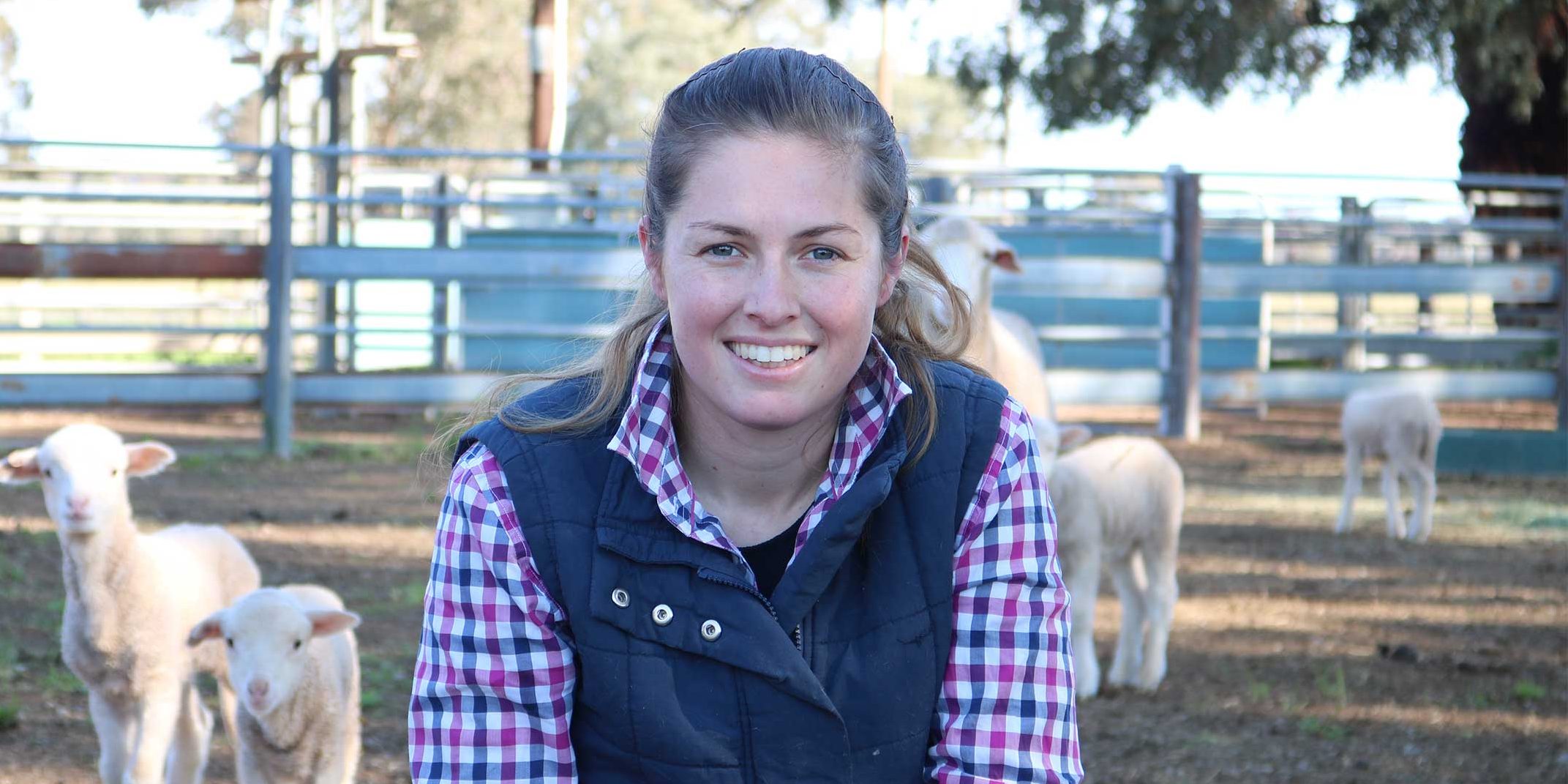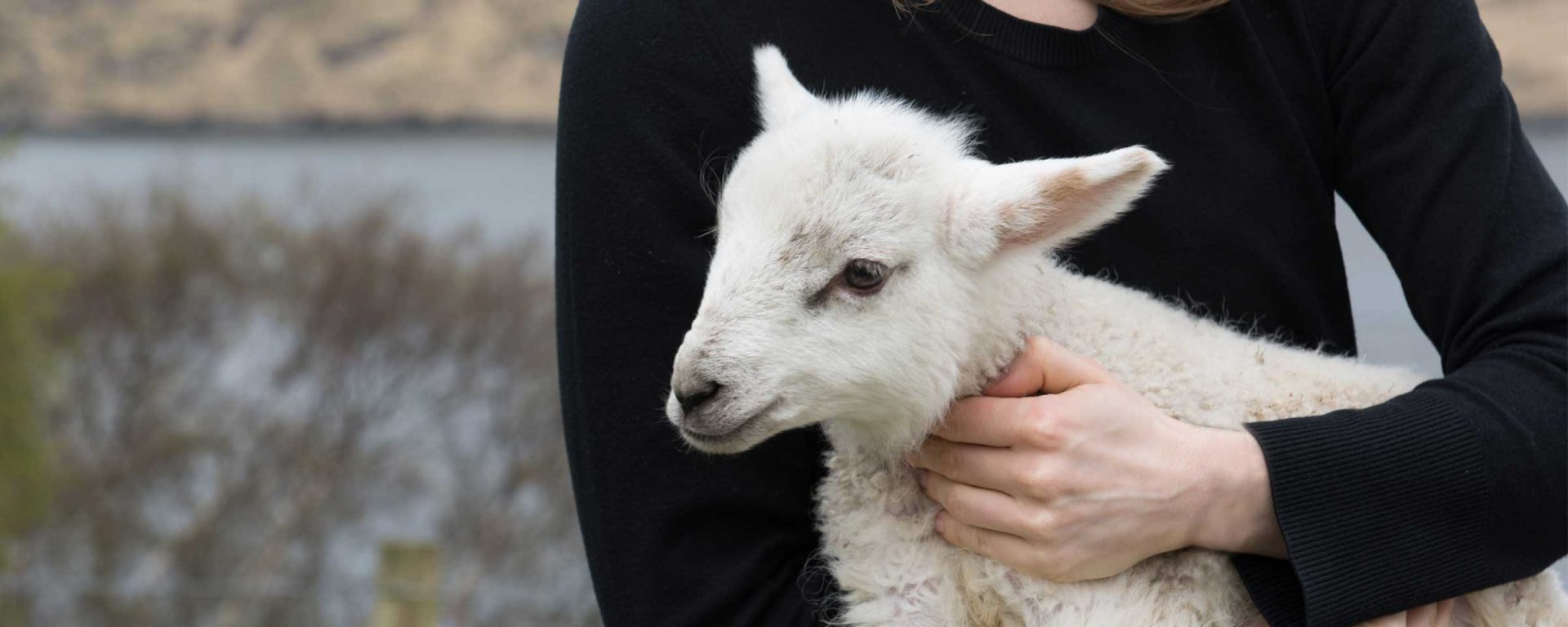Do you want to create new knowledge? Push the boundaries of what’s known, what’s possible? Then doing a PhD could be just what you’re looking for. But what’s it actually like doing a PhD? We asked Charles Sturt University student Kayla Kopp to give us a little insight. Kayla grew up on a merino stud in the central west of NSW and developed a strong interest in life on the land. She completed her Bachelor of Animal Science (Honours)1 before deciding to undertake a PhD.

Before you start doing a PhD
A Doctor of Philosophy (PhD)2 is your chance to establish yourself as an expert in your field. You’ll make an original and significant contribution to knowledge in your chosen discipline. At Charles Sturt, a PhD is one type of HDR – Higher Degree by Research – and completing one could pave the way for a rewarding career in research or academia anywhere in the world.
The first step when determining whether to commence this next level of study, Kayla suggests, is introspection.
“Undertaking a PhD will be the best time of your life. You’ll develop greater strength and more resilience. You’ll need to be committed to your goals to complete a PhD. And make sure you genuinely have a passion for your topic – because you’ll be knee deep in it for three to four years!”
Choosing your PhD topic
Kayla’s PhD combined many things she loved – life on the land, research, animal nutrition and making a real difference for Australian farmers. But still, choosing her topic wasn’t quick and easy. It took time.
“You do need a broad idea of what you want to do; for me it was ways to increase lamb survival rates. But initially I wasn’t sure what specific path I was going to follow. A PhD is quite defined in terms of subject matter.
“On my first day back at Charles Sturt I remember thinking ‘I don’t really know what I’m doing’! Then in a meeting, my supervisor suggested I do a literature review on some topics and from that develop a list of possible ideas.
“That initial stage can be daunting, but after about a month of thinking, reading and researching, I was fine. I began to form ideas around which path I wanted to take.”
Properly defining your area of study is the first challenge. A well-defined topic will set a strong foundation for the rest of your study. Take the time to work things through and be clear on your goal. Connect with those in the industry, brainstorm with experts or have further discussions with your supervisors.
Selecting supervisors that fit with you
You should put just as much care and consideration into selecting your supervisors as you do your PhD topic! After all, they’ll be taking this journey with you.
Most PhD students will have more than one supervisor. In Kayla’s case she has three – one of whom is now in the USA. So, you should be mindful of their expertise and interpersonal strengths. When choosing your supervisors make sure you feel comfortable working with them, and that they’re supportive and approachable.
Your supervisor’s role is broad, but the basics include:
- to support and guide
- help to set goals
- review and sign off on your work.
Kayla explains that supervisors are an integral part of the PhD experience.
“You wouldn’t be able to complete a PhD without them. Mine are amazing. Always there to encourage, motivate and help – in person, over the phone or via Skype. They’re like your own PhD personal trainer behind the scenes. Good supervisors know the right balance between supporting and guiding you and giving you enough freedom to make your own decisions and generate your own learnings.”
What’s involved in compiling a thesis?
A thesis is an integral component of many postgraduate qualifications. As a guide, a thesis usually includes the following sections.
- Introduction. Why you’re doing this study and what’s its significance?
- Literature review. What’s known and unknown? What are the gaps?
- Research question. Your aim – what you hope to discover? Your methodology – how will you discover it?
- Results. What did you find?
- Discussion. What do your results mean? How do they relate to the literature?
- Conclusions. What are the possible applications or recommendations and what contribution does it make to knowledge?
- References
Kayla makes it all sound so simple.
“Firstly, you do your lit reviews, where you find gaps in the current research. Then you design an experiment to address that issue, conduct the experiment and analyse your statistics. Lastly, you present your findings in a paper.”
But a thesis is often made up of several papers (based upon several research questions) and designing and conducting individual experiments are mini projects in themselves.
Though each PhD has different requirements, Kayla produced three experimental papers (based on her experiments) and one survey to include in her thesis. Plus, her literature review and a discussion chapter that brought together all her research findings.
“At times, for my experiments, I would be spending 24 hours a day with the sheep. Then you have to enter all your data, analyse the stats and do the related lab work. Then you go full pelt writing it all up!”
How long does a PhD take?
Every PhD student’s experience will be unique. And throughout your study there probably won’t be too many weeks that look the same. But one thing all PhD students have in common is you’ll be required to put in a considerable amount of time and effort.
“I describe my PhD study as like having a full-time job. When I’m in the office I try to stick to office hours, 8am–4pm. That lets me enjoy my home life as well, maintain a balance and not take too much study home with me.
“But when I’m doing my onsite sheep research projects, it involves 24-hour days. My last project ran for three months. While the ewes were lambing, I couldn’t leave them for more than an eight-hour period because I had to take measurements at certain times. So, there were nights when I would sleep alongside the sheep. Sometimes I would know the ewe was lambing and I’d have an hour nap, waiting for the process to begin.
“Depending on your research project topic, you may have to dedicate your day or days to it. But it’s different when you get to the stage of writing up your projects.
“Some days your writing just flows. You’ll write pages and pages. Other days you can try, but it doesn’t happen. For those days, just move on. Change what you’re doing or go home. Allow yourself to have a break. Because it’s better to come back later, refreshed, and try again.
“Just remember that every day you’re working towards the same goal. It doesn’t matter how many words you write – it’s the quality of what you write that’s important.
“If you’re struggling, know that tomorrow you’ll be able to use what you’ve read and thought about today to write something meaningful.”
How many years will it take to complete a PhD?
The short answer to the question of how long does a PhD take is – usually three to four. But it’s good to remember that even a PhD has flexibility and you can take a break if you need to.
Funding a PhD – the importance of scholarships
Like many PhD students, Kayla had questions around how to fund her study. And the answer was – scholarships! In fact, three of them.
“My first scholarship was an Australian Research Training Program Scholarship. That gives me money to live on and funds to conduct my research. I also received scholarships from the Graham Centre for Agricultural Innovation and another from Meat and Livestock Australia.
“There are a lot of expenses involve in my conducting my PhD – including buying feed and looking after the sheep. These scholarships enable to me to do more. Take more samples, do more lab work. I’m very thankful to those who’ve provided my scholarships.”
Whether you’re considering full-time or part-time study, at Charles Sturt you can apply for admission to your PhD and apply for a research scholarship at the same time! Need help? Check out the scholarships application guide.
What’s the secret to PhD success? Balance
As well as undertaking her PhD, Kayla likes to keep busy with other activities – it helps keep her balanced.
“I have a part-time job, do some lecturing and help set up some pracs for a few subjects. Having other things to do helps you take a break from your study. That’s my time. I don’t have to worry about my PhD. It’s important to have balance and enjoy my life. Having a few different things to be doing helps me de-stress and I’m much more productive with my study.
“I found that was especially important during the writing stages. Some people would ask how I found the time to do other things. I would spend a few hours writing for my PhD, go to one of my jobs and come back to write some more. Those other avenues help alleviate stress and keep me focused.
“I might have worked on my study for eight hours in a day – but I had an important break in the middle.”
You can make a difference
So, what does a better world look like to you? Does it mean finding a cure for illnesses, improving education, making new discoveries, promoting sustainability or like Kayla, helping farmers increase stock survival rates?
Play your part by doing a PhD with Charles Sturt University. However, you want to make a difference, you can here.

1Cricos: 068972G
2Cricos: 007607A, 039408G


You must be logged in to post a comment.